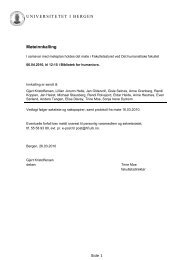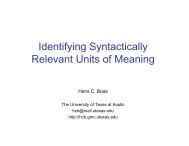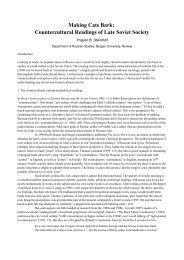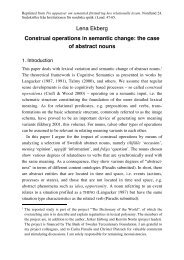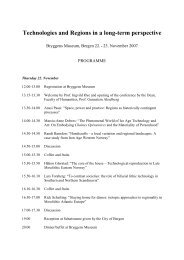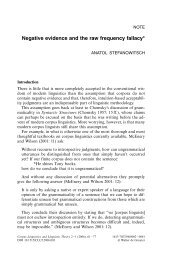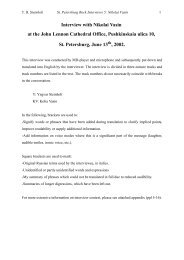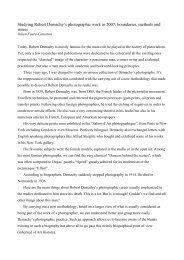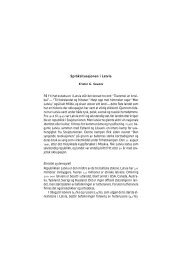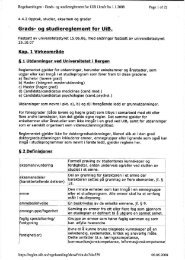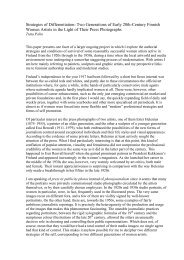THE BOOK OF POEMS IN TWENTIETH-CENTURY ... - TopReferat
THE BOOK OF POEMS IN TWENTIETH-CENTURY ... - TopReferat
THE BOOK OF POEMS IN TWENTIETH-CENTURY ... - TopReferat
Create successful ePaper yourself
Turn your PDF publications into a flip-book with our unique Google optimized e-Paper software.
ним поговорить? The two parts do not seem to fit together logically—the only thing<br />
which links them is the act of forgetting. The ellipsis points to the "forgotten" words of<br />
the original source. In a Russian translation of Chuang Tzu the passage reads:<br />
Ловушкой пользуются при ловле зайцев. Поймав зайца, забывают про ловушку.<br />
Словами пользуются для выражения смысла. Постигнув смысл, забывают про<br />
слова. Где бы найти мне забывшего про слова человека, чтобы с ним<br />
поговорить? 203<br />
Here the Daoist philosopher, unlike Shvarts, provides a clear parallelism<br />
between capturing the hare and capturing words. Just as the trap is forgotten once the<br />
hare is caught, so are the words forgotten once the meaning is grasped. The concluding<br />
question, "where can I find someone who has forgotten the words [and thus grabbed the<br />
meaning], in order to speak with him," poses an impossible situation: you can not speak<br />
to someone who has forgotten the words. While you may desire to have meaning given<br />
to you from someone who has already obtained it, you must discover your own words<br />
and your own path to truth. This message is obscured in the epigraph by the forgotten<br />
words of Chuang Tzu, just as the answer to Evald's question is held back in the Rilke<br />
epigraph. The technique of ellipsis thus points to a common theme in two epigraphs<br />
taken from radically different traditions—the individuality and nontransferability of<br />
spiritual knowledge and experience.<br />
The concepts of ellipsis and forgetting point also to the extraordinary, yet<br />
transitory power of words themselves. According to Chuang Tzu, words are needed to<br />
reach a truth, but once that truth is attained, they are forgotten. By citing this at the<br />
beginning of her book, Shvarts suggests that the many words and poems which follow are<br />
203 Chzhuan-tszy, chapter 26, translated by V.V. Maliavin. [http://skeptik.dp.ua/lib/fil/chu/26.htm]<br />
(accessed December 19, 2003).<br />
151



